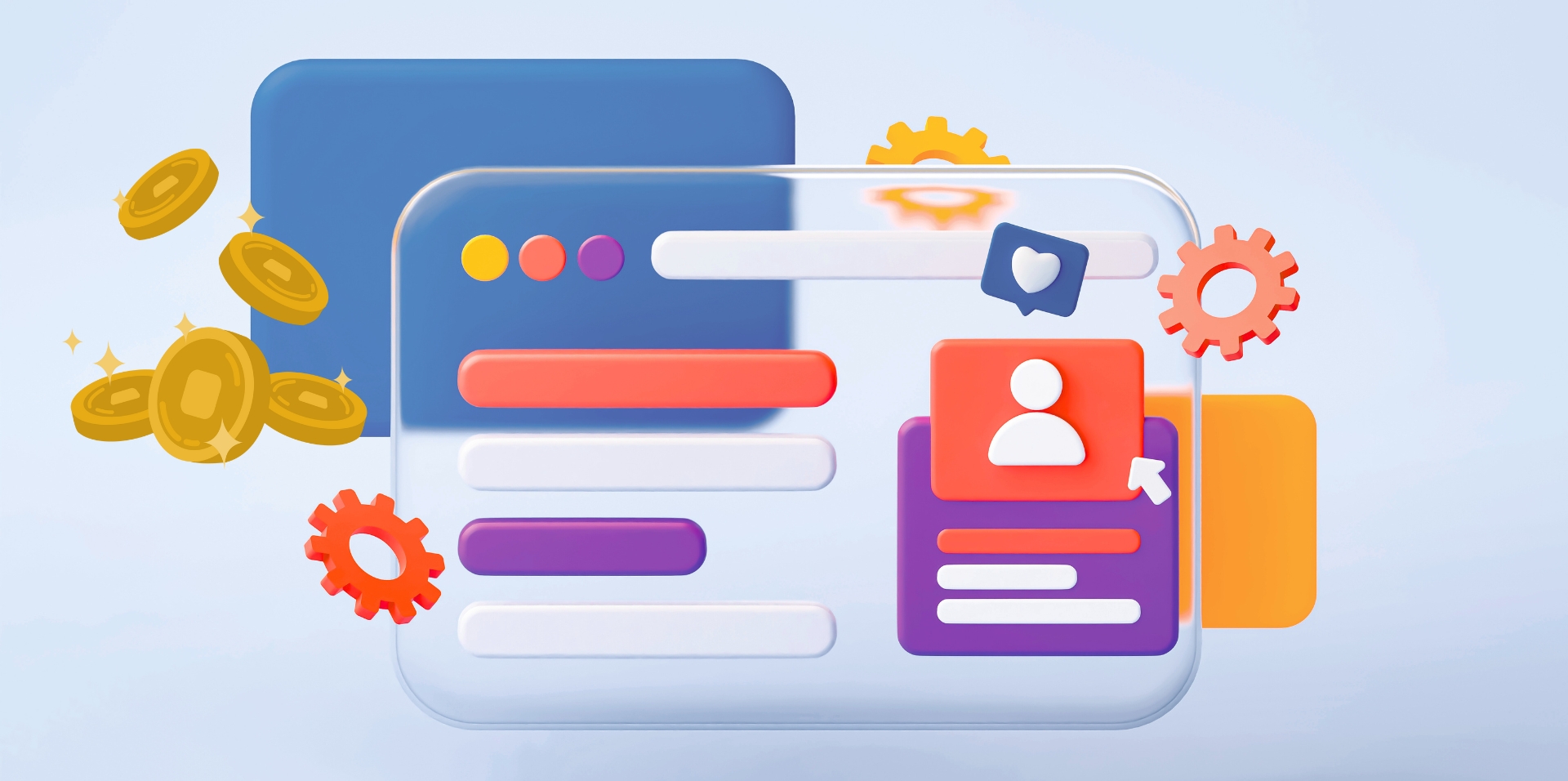Artificial Intelligence (AI) is no longer a futuristic idea – it’s already powering marketing campaigns, analysing customer data, and helping many businesses achieve better results. From large language models (LLMs) creating content to machine learning algorithms predicting audience behaviour, the potential of AI systems is undeniable.
Yet, with rapid innovation comes some confusion and even myths. Some business owners worry AI will be replacing humans or that AI development is only for tech giants with teams of researchers and endless data points. Others fear the steep learning curve and the lack of transparency in algorithms, which can seem impossible to interpret or explain.
AI isn’t here to replace marketers, it’s here to change how they work for the better. With the right approach and guidance, AI software can take on repetitive, time-consuming tasks, turn raw data into actionable insights, and help you reach your business goals more efficiently. In this blog, we break down some of the most common myths about AI and marketing so you can explore its potential with clarity and confidence.
At britweb, we harness smart AI-driven marketing and proven digital strategies to help your business stand out online, attract the right audience, and convert more customers.
Contact us today and let our experts boost your performance with data-driven digital marketing services.
Myth 1: AI will replace marketers
One of the most common worries about AI systems is that they might eventually take over marketing roles and make people redundant. While it’s true that machines can now handle many time-consuming tasks, such as generating reports, analysing large sets of data points, and spotting patterns, that doesn’t mean they can replace the human side of marketing.
Great marketing isn’t just about logic or algorithms; it’s about understanding what motivates customers, adapting to cultural shifts, and telling stories that connect on an emotional level. These are things no model or machine learning algorithm can fully replicate.
That said, some routine roles may evolve as AI software becomes more capable, especially jobs focused purely on repetitive tasks or manual reporting. However, this shift is more about changing how marketers work than eliminating them entirely. By using AI today as a smart assistant, businesses can automate low-value processes and transform raw data into actionable insights, giving marketing teams more time to focus on creativity, strategic thinking, and authentic customer connection.
To better understand how AI is transforming search and digital marketing, explore our Generative Engine Optimisation (GEO) services.
Key takeaway: AI systems will change some marketing tasks but are primarily designed to support marketers, freeing them to focus on creativity, strategy, and human connection.
Myth 2: AI is hard to use
Not long ago, working with AI often meant diving deep into advanced mathematics, linear algebra, and complex technical systems. Many people assumed you needed to be a data science expert to make AI work for your business. Fortunately, that’s no longer true.
Modern cloud-based AI platforms and marketing AI software are designed to be far more user-friendly. They come with intuitive dashboards, plug-and-play integrations, and clear visual insights, so you don’t have to decode the black box of algorithms to benefit from them.
Today, tools powered by machine learning can automatically segment audiences, predict behaviours, and optimise ad performance, all without requiring you to write a single line of code.
Key takeaway: Modern AI systems are built to be user-friendly, so you can benefit from powerful insights without needing to be a data science expert.
Myth 3: AI is expensive and only for big companies
It’s easy to think AI systems are built only for tech giants with deep pockets and access to more data than most small and medium-sized businesses could ever collect. However, the world of AI has changed dramatically. Modern cloud-based AI platforms now offer affordable, subscription-based solutions that scale as your business grows.
Fortunately, you no longer need to invest in huge AI projects from scratch. For example, you can use Generative Engine Optimisation (GEO) to make your content more visible in search results, add an AI-driven chatbot to handle routine customer queries, or use machine learning tools to analyse campaign performance and recommend improvements automatically.
These options let you adopt AI step by step, keeping costs manageable while still unlocking meaningful business value.
Key takeaway: AI software and cloud-based AI platforms are no longer reserved for big companies; businesses of any size can start small, scale gradually, and see an impact without overspending.
Myth 4: AI can predict the future
As AI models use advanced mathematics and powerful data analysis, it’s easy to assume they can forecast exactly what will happen. Yet in the real world, AI makes pattern-based forecasts, it identifies trends from past behaviour and processes more data to estimate likely outcomes, yet it can’t offer guarantees.
For example, an AI model might analyse previous sales and predict future demand, but unexpected market shifts, cultural changes, or global events can still disrupt those forecasts. That’s why effective decision-making in marketing works best when AI-driven insights are paired with human experience, creativity, and flexibility.
Key takeaway: AI systems can help you anticipate trends and make smarter choices, but they don’t remove uncertainty. Human judgement remains essential for adapting to a changing world.
Myth 5: AI creates perfect content on its own
A common belief is that large language models and AI writing tools can handle all marketing content without human help. While they’re excellent at producing first drafts and saving time, they don’t truly understand your brand identity, your customers, or subtle compliance requirements.
AI-generated copy can include:
- Mistakes – factual errors or misunderstood context.
- Overly generic language – bland phrasing that weakens your brand voice.
- Outdated information – relying on older data or trends.
- Inconsistent tone – shifts that confuse readers or weaken trust.
- Poor SEO alignment – missing search intent or keyword strategy.
To meet SEO fundamentals, maintain your unique voice, and protect accuracy, human review and refinement are essential. If you want high-performing, brand-aligned content that uses AI effectively but keeps human creativity at its core, explore our content marketing services.
Key takeaway: AI systems are powerful for speeding up content creation, but the best marketing results still come from combining AI-generated drafts with human creativity, strategy, and quality control.
Myth 6: Using AI means sacrificing data privacy
Privacy and data protection remain top priorities, and adopting AI systems doesn’t mean losing control of your information or breaking regulations. While not every platform is automatically compliant, AI development can be implemented in ways that meet standards like GDPR, allowing you to innovate while keeping sensitive details safe.
Trusted cloud-based AI platforms let businesses decide where their data is stored, how it’s processed, and who can access it. Techniques such as anonymising sensitive data points, limiting access permissions, and using secure infrastructure help reduce risk while still unlocking valuable insights. With the right planning and oversight, AI today can be both powerful and safe, protecting privacy while delivering real business value.
Key takeaway: With proper safeguards and responsible AI development, businesses can gain actionable insights and growth opportunities without compromising trust or compliance in an increasingly digital world.
How businesses can start using AI
The key to using AI systems confidently is strategic adoption. Too often, companies either avoid AI or jump in without a clear plan. Both approaches can waste time, budget, and momentum.
Begin by pinpointing areas where AI can deliver quick wins and measurable business value. For example:
- Use Generative Engine Optimisation (GEO) to boost organic reach by analysing search intent and optimising content so it’s more visible in search results.
- Implement AI chatbots to handle routine FAQs, freeing your team to focus on complex, relationship-driven customer service.
- Leverage machine learning algorithms to segment audiences more accurately and place ads where they’ll have the most impact.
- Adopt AI-powered analytics tools to turn large data sets into actionable insights that guide better decision-making.
Once you’ve tested and seen results, scale gradually. Track success with clear data points like conversion rates, engagement metrics, or lead quality to ensure each step adds real business value.
Finally, seek reliable guidance. Partnering with experts can help you choose the right AI software and ensure each solution is purposeful, aligned with your business goals, and capable of delivering measurable value.
Summary
AI isn’t here to replace marketers, it’s here to empower them. By automating repetitive tasks and turning large datasets into actionable insights, AI systems give marketers the space to focus on creativity, strategy, and building customer relationships. Tools like cloud-based AI platforms, large language models, and machine learning algorithms now make advanced marketing capabilities accessible to many businesses, not just global tech giants.
For companies exploring AI today, the best approach is to start with practical tools, chatbots, and analytics, whilst ensuring compliance and data protection and measuring impact as you scale. With the right guidance, you can harness the power of AI to achieve measurable success while keeping your brand voice, creativity, and customers at the heart of your marketing.
Book a free consultation with britweb
Ready to bring AI software into your digital marketing strategy and see meaningful results? At britweb, we combine data analysis, strategic insight, and powerful AI systems to help your business rank higher in search, boost conversions, and stay competitive in your market.
Get in touch with britweb today for a free consultation by calling 01403 261491 or filling out our online contact form.
Learn AI and marketing FAQ
Can small businesses actually benefit from AI in marketing?
Yes. Many businesses, even without huge data sets or specialist teams, can use AI systems to save time and improve outcomes. Tools like chatbots, Generative Engine Optimisation (GEO), and predictive analytics help with decision-making, automate time-consuming processes, and deliver actionable insights to reach business goals faster.
How much technical expertise is needed to use AI in marketing?
Today’s AI software and cloud-based AI platforms are designed for easy adoption, even for non-technical teams. While understanding some AI fundamentals can be helpful, you don’t need to master advanced mathematics or linear algebra to get started. Many platforms offer intuitive dashboards and built-in guidance, making it simple to implement AI effectively and align it with your business goals.
Will using AI in marketing boost my results instantly?
Not instantly, but it can accelerate progress. AI models improve over time as they process more data and adapt to your campaigns. They streamline analysis and highlight better decisions, but creativity, strategy, and human refinement remain critical to long-term success.


